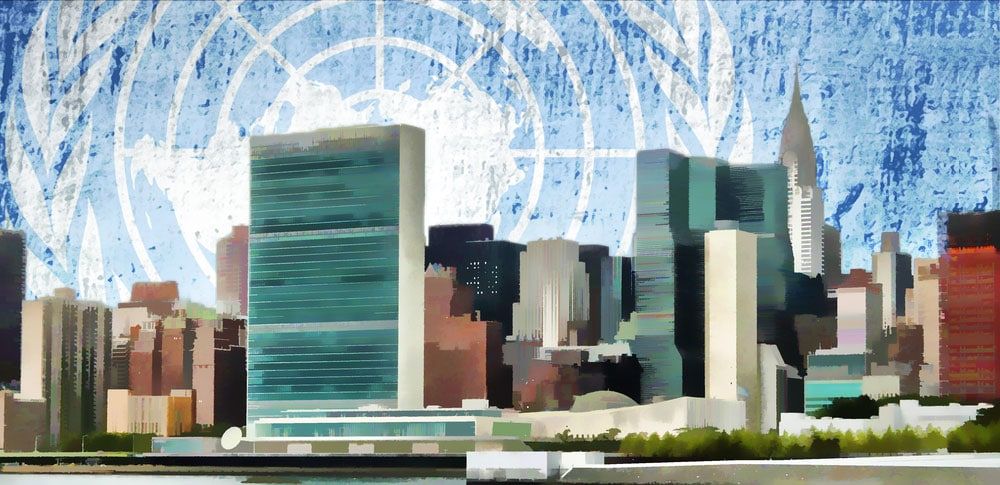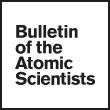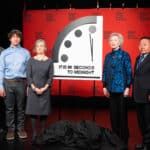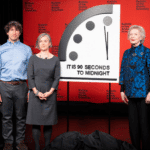A historic turning point for disarmament
By Tim Wright | March 20, 2017

Almost half a century has passed since governments concluded the Nuclear Non-Proliferation Treaty (NPT). Today, most of the 190 states party would agree that too little has been done toward realizing its core objective: a world free of nuclear weapons. Against this backdrop, a majority of the world’s nations are about to embark on perhaps the most significant initiative since 1968 aimed at implementing Article VI of the treaty, which obliges all states party to pursue negotiations “in good faith” on effective measures for nuclear disarmament. On March 27 in New York City, UN negotiations for a “legally binding instrument to prohibit nuclear weapons” will begin.
How did we reach this historic turning point? Ireland, together with Brazil, Egypt, Mexico, New Zealand, and South Africa, first put forward the idea of a nuclear-weapon ban treaty at an NPT meeting in 2014. Such a ban, they said, would operate alongside and in support of the NPT and constitute one of a number of effective measures needed to eliminate nuclear weapons. “A prohibition on nuclear weapons is a logical and moral imperative,” the Irish disarmament ambassador, Patricia O’Brien, has said. “It is also a legal imperative, stemming from Article VI of the NPT.”
In the UN General Assembly last December, it became clear that a great majority of NPT members supported the proposed treaty. They voted overwhelmingly in favor of the resolution establishing the mandate for negotiations. The new treaty, when adopted, will place nuclear weapons on the same legal footing as other weapons of mass destruction, which have long been prohibited under international law. Proponents hope that it will greatly strengthen the global norm against nuclear weapons and spur much-needed action toward their abolition.
The negotiations are a necessary response to the deep concern expressed by all NPT members in 2010 at the “catastrophic humanitarian consequences” that would result from any use of nuclear weapons. In the final document of that year’s NPT review conference, they affirmed the need “to make special efforts to establish the necessary framework to achieve and maintain a world without nuclear weapons.” After decades of paralysis in multilateral nuclear disarmament efforts, the ban negotiations are a major opportunity for NPT states to contribute toward full implementation of Article VI.
Of course, some NPT members vehemently oppose the initiative, recognizing that it will fundamentally challenge the perception that their reliance on nuclear weapons is legitimate. Last October, the United States “strongly encourage[d]” its NATO allies to vote against the start of negotiations. “In addition, if negotiations do commence, we ask allies and partners to refrain from joining them,” the US government said in a paper explaining how the ban would make it more difficult for NATO members to cooperate in preparations for nuclear war.
It is likely that several US allies will obediently comply with this request. Australia, for example, said on March 2 that it plans to boycott the talks, as it “would not be able to negotiate in good faith.” But others will form an independent view. For example, the Netherlands, which hosts US nuclear weapons on its soil, said on February 27 that it “has chosen to take part constructively, with an open mind and without being naïve.” This is the responsible course of action for any nation wishing to uphold the NPT and prevent its further disintegration.
The greatest threat to the NPT today comes not from the negotiation of a ban treaty—as some nations have disingenuously claimed—but rather from the continued failure of the nuclear weapon states, and many of their allies, to take seriously their disarmament obligations. The NPT is not a licence for certain nations to retain nuclear weapons forevermore, or for others to indefinitely claim the “protection” of an ally’s nuclear weapons.
Recent threats of a new nuclear arms race and ongoing programs to replace old nuclear warheads with ever-deadlier ones cause much damage to the NPT, as does the ill-considered boycott of the forthcoming UN negotiations. At a moment of great global uncertainty and instability, negotiating a ban on the very worst weapons of mass destruction is more crucial and urgent than ever. States should strive to achieve the most robust and effective treaty possible.
This post is part of Ban Brief, a series of updates on the historic 2017 negotiations to create a treaty banning nuclear weapons. Ban Brief is written by Tim Wright, Asia-Pacific director of the International Campaign to Abolish Nuclear Weapons, and Ray Acheson, director of Reaching Critical Will.
Together, we make the world safer.
The Bulletin elevates expert voices above the noise. But as an independent nonprofit organization, our operations depend on the support of readers like you. Help us continue to deliver quality journalism that holds leaders accountable. Your support of our work at any level is important. In return, we promise our coverage will be understandable, influential, vigilant, solution-oriented, and fair-minded. Together we can make a difference.
Topics: Announcement













